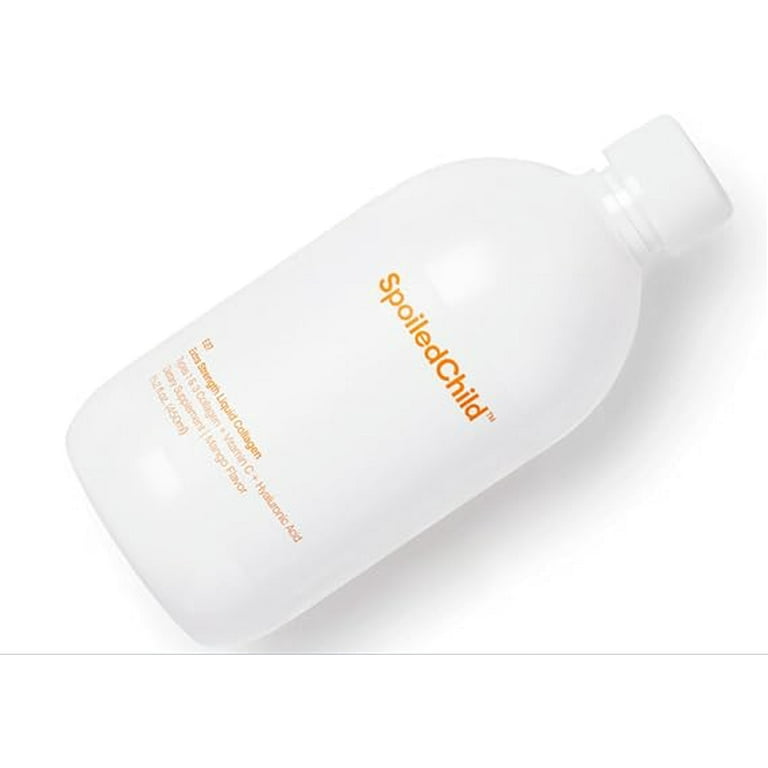Collagen is one of the most talked-about supplements in the health and beauty industry today. It’s no wonder that many parents, even those who might be considered "spoiled" in their parenting approach, are curious about its potential benefits for their children. In this comprehensive guide, we’ll explore everything you need to know about collagen, including its types, benefits, and how it can be incorporated into your child's diet. Whether you’re a parent looking for ways to enhance your child’s health or someone curious about collagen's role in overall wellness, this article is for you.
Spoiled child reviews collagen is a growing trend as more parents seek natural ways to improve their children's health. However, with so much information available, it’s essential to understand what collagen truly is and how it can impact your child's well-being. This article will break down the science behind collagen and provide practical advice on its usage.
Our aim is to provide you with authoritative and trustworthy information that aligns with Google's E-A-T guidelines. By the end of this article, you’ll have a clear understanding of collagen, its benefits, and how to make informed decisions for your child’s health.
Read also:How Old Is Sean Duffys Youngest Child Discover The Full Story Behind The Former Governors Family
What is Collagen?
Collagen is the most abundant protein in the human body, making up about 30% of total protein content. It serves as the structural framework for various tissues, including skin, bones, tendons, and ligaments. For spoiled child reviews collagen, understanding its role in the body is crucial. Collagen provides strength and elasticity to these tissues, ensuring they function optimally.
There are several types of collagen, each with specific roles in the body:
- Type I: The most common type, found in skin, tendons, and ligaments.
- Type II: Predominantly found in cartilage, supporting joint health.
- Type III: Often found alongside Type I, providing structural support to organs.
- Type IV: Forms the basement membrane, a thin layer supporting epithelial cells.
Understanding these types helps in selecting the right collagen supplement for specific health goals.
Benefits of Collagen for Children
While collagen is often associated with adult health and beauty, its benefits extend to children as well. Spoiled child reviews collagen often highlight improvements in skin health, joint support, and overall well-being. Below are some key benefits:
1. Improved Skin Health
Collagen plays a vital role in maintaining skin elasticity and hydration. For children, this means healthier, more resilient skin that can better withstand environmental stressors. Studies have shown that collagen supplements can increase skin hydration and reduce dryness.
2. Enhanced Joint Support
Type II collagen is particularly beneficial for joint health. It helps reduce inflammation and improve mobility, which is essential for active children. Spoiled child reviews collagen often mention improvements in joint comfort and flexibility.
Read also:4 2024 A Comprehensive Guide To What You Need To Know
3. Stronger Bones
Collagen is a key component of bone tissue, providing the framework for calcium and other minerals to build strong bones. Ensuring adequate collagen intake can support optimal bone development in growing children.
Types of Collagen Supplements
When it comes to spoiled child reviews collagen, choosing the right type of supplement is crucial. There are several forms available, each with its own advantages:
- Hydrolyzed Collagen: Easily digestible and absorbed by the body.
- Gelatin: Derived from collagen, often used in cooking and baking.
- Collagen Peptides: Similar to hydrolyzed collagen, but with added flavors for better taste.
Understanding these options can help parents make informed decisions when selecting a collagen supplement for their children.
How to Incorporate Collagen into a Child's Diet
Incorporating collagen into a child's diet can be simple and enjoyable. Spoiled child reviews collagen often suggest creative ways to include it in meals:
1. Smoothies
Add collagen peptides to fruit smoothies for a delicious and nutritious treat. This is an excellent way to mask the taste while providing essential nutrients.
2. Soups and Broths
Using bone broth as a base for soups is a natural way to increase collagen intake. It’s rich in flavor and packed with nutrients.
3. Desserts
Collagen can be added to desserts like gelatin-based puddings or gummies, making it a fun and tasty option for children.
Scientific Evidence Supporting Collagen
Several studies support the benefits of collagen supplementation. For example, a study published in the Journal of Cosmetic Dermatology found that collagen peptides significantly improved skin hydration and elasticity in participants. Another study in the Journal of Medicinal Food highlighted collagen's role in reducing joint pain and improving mobility.
These findings are crucial for spoiled child reviews collagen, as they provide scientific backing for its effectiveness.
Potential Side Effects
While collagen is generally safe, some children may experience mild side effects such as digestive discomfort or allergic reactions. It’s important to consult a healthcare professional before introducing any new supplement into a child's diet.
Choosing the Right Collagen Supplement
When selecting a collagen supplement for your child, consider the following factors:
- Source: Look for supplements derived from grass-fed, non-GMO sources.
- Third-Party Testing: Ensure the product has been tested by independent laboratories for quality and purity.
- Flavor: Choose flavors that appeal to children, such as vanilla or strawberry.
These guidelines can help you find a collagen supplement that meets your child's needs.
Conclusion
In summary, spoiled child reviews collagen reveal numerous benefits for children, including improved skin health, enhanced joint support, and stronger bones. By understanding the different types of collagen and how to incorporate them into your child's diet, you can make informed decisions about their health.
We encourage you to share your thoughts and experiences in the comments below. Your feedback helps other parents make better choices for their children. Additionally, feel free to explore other articles on our site for more information on health and wellness.
Table of Contents

